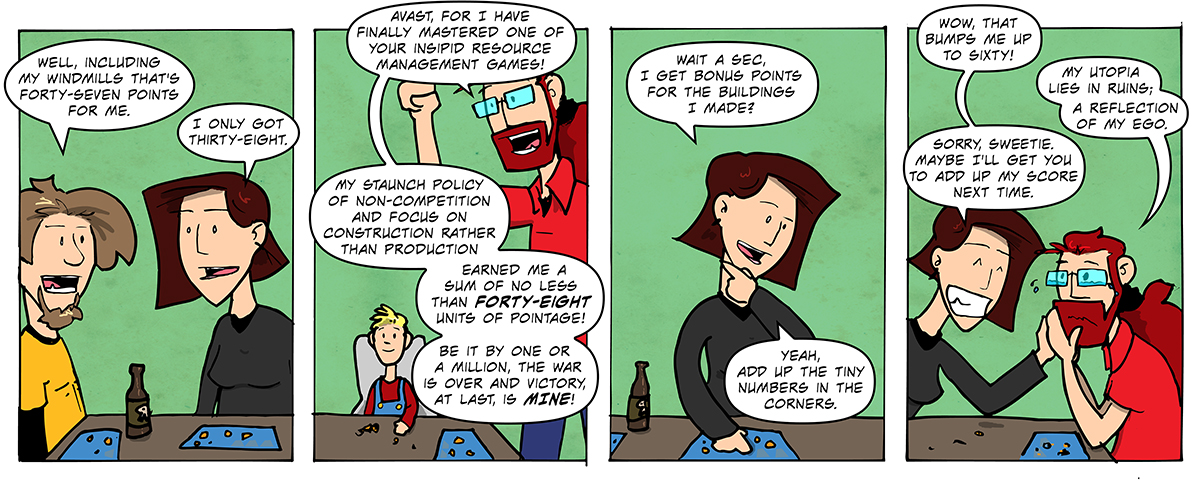For the record, my perfectly rational hatred of resource management board games is far better grounded than the simple chagrin of rarely being able to summon the planning and adaptation skill necessary to rise to victory within them. A moment of defeat such as the one documented in ink and color above is actually something to cherish after a good cry is out of the way. What really tugs my chains about games is that victory or defeat is generally decided very early on, and with enough skill and experience you can realize that you’ve little hope of winning within the first twenty minutes of a two-hour game. In these games, however, there is no elimination until scores are tallied at their conclusion. So should you rub three of your five brain cells together and apprehend yourself in this position, you’re doomed to a game of essentially meaningless decisions culminating in a predictably dire personal outcome. In desperation, one might be tempted to act solely in an attempt to upset the balance of power between the people still actually competing, but in my family this provokes a purely vitriolic response from those who I am apparently socializing with through this medium. All of this combined with the fact that I almost always lose is the reason I oft refuse to settle Catan, and will generally only participate in that particular game to round out what would otherwise be a three-player event, which is a circle of hell I’d not wish upon my arch nemesis.
To fair, my arch nemesis is a cat, and thus would not be likely to be involved in any of the above scenario, but I digress.
Those who are like-minded are hereby encouraged to give this game a checking-out. I would also caution you to seek out the commercially obsolete Second Edition, as some time between it and the Third Edition they decided to throw away all the hard-edged painted renderings of the massive fleets and replace this work with scribblings you might find in the margins of a high-school textbook. The experience suffers somewhat, as the original art work really helped one get in the mood for making laser-sound effects, which are a key component of the game’s rule structure.
In any case, this is a game where when you lose, it is because you have exploded. At this point it is reasonable to get up, grab another cup of soda and a cookie, and return to the table to simultaneously lord your confections over the players still chained to the combat before them and tease the player most likely to explode next. As the typical four player game rarely lasts more than twenty minutes, one is rapidly presented with another opportunity to explode. The winners get a combat-high and the losers get cookies. It’s impossible to resist the allure of this design.
DOOSH! DOOSH!
Ja.
